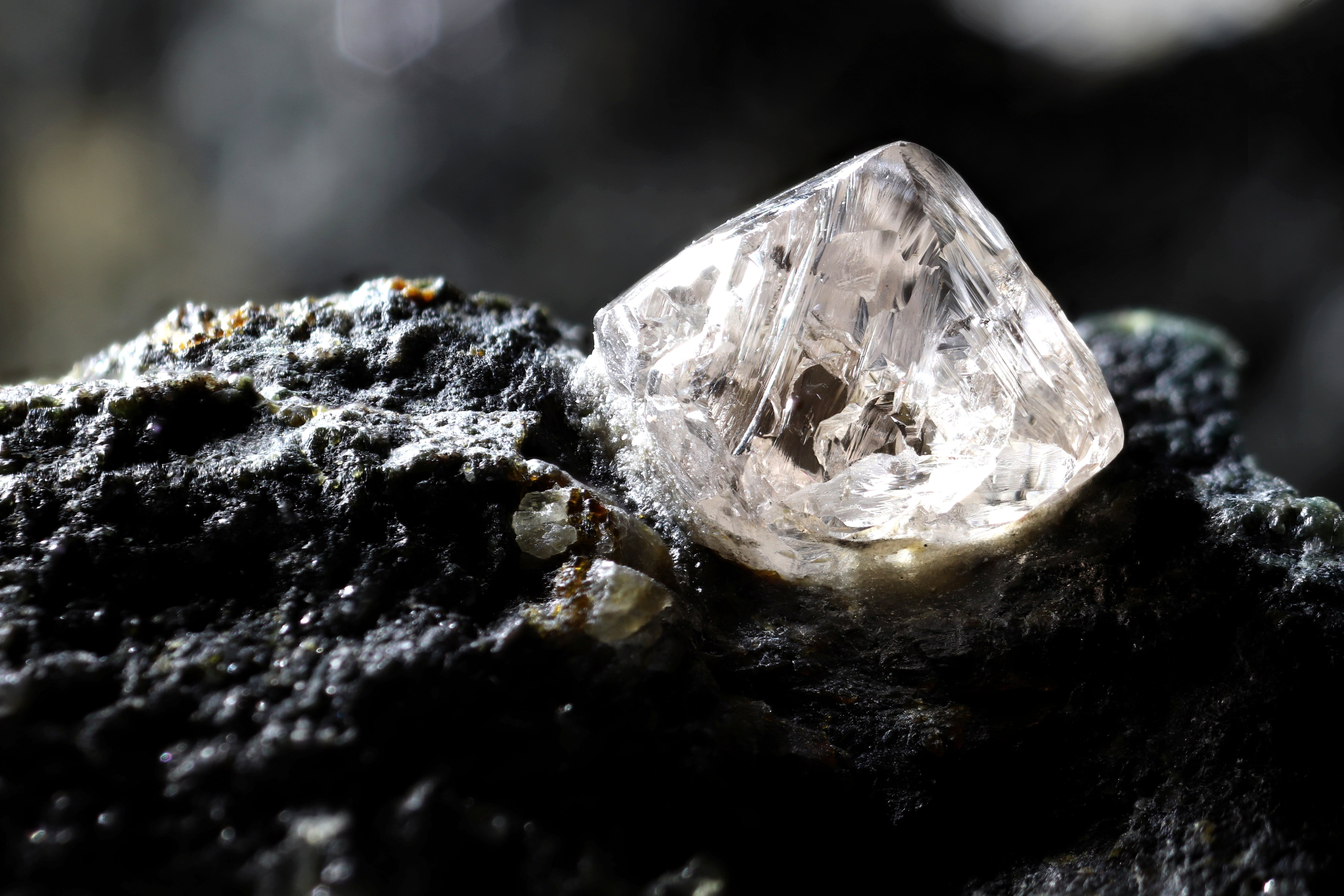In 2010, De Beers’ exploration arm in Botswana sold its stake in a diamond deposit for $49-million to Canadian miner Lucara.
The De Beers board probably breathed a sigh of relief at getting out of AK6, as the deposit was known. De Beers had concluded that the project’s potential was unpromising, putting it at loggerheads with its joint venture partners.
De Beers may now have seller’s remorse, as the deposit turned out to be a mother lode for big diamonds – but then, in this tough market, mega stones do not always mean mega profits.
Lucara would go on to acquire the entire asset and develop it into the Karowe diamond mine. And since it installed a pioneering sensor system known as X-ray transmission (XRT) technology in 2017 – developed by Norwegian-listed and resource-focused technology group Tomra – it has been uncovering mammoth diamonds.
Fifteen of the 23 largest diamonds unearthed over the past decade have been found with this technology, 13 of them at the Karowe mine.
In the past few weeks alone, two absolute thumpers have been unearthed there. On 21 August, Lucara announced it had recovered a 2,492-carat diamond from Karowe – the largest since the 3,106-carat Cullinan diamond was discovered in 1905 near Pretoria.
The diamond, which is significantly larger than a cricket or tennis ball, is the largest diamond ever found in Botswana, and President Mokgweetsi Masisi had his picture taken holding the stone.
This was followed by Lucara’s announcement on 15 September that the mine had subsequently coughed up a 1,094-carat rough diamond.
The XRT technology is not used underground or in the mining pit, but during the treatment process after the mined ore has been hoisted to the surface.
According to a presentation earlier this year at a diamond conference in Canada by Tomra, the ore stream is processed through a sorter or conveyor belt.
“Towards the end of the conveyor belt, the XRT technology system detects the material based on its atomic density to eject the diamonds pneumatically into the concentrate chamber,” it says.
The system is designed to prevent damage to large diamonds, which can be brittle, by identifying and recovering the stones at an early stage in this process.
Diamonds are made of carbon and the Tomra sorters on diamond mines are set up to identify the carbon and eject the diamonds from the ore stream.
Technology trends amid ‘downward spiral’

The discoveries of these mega diamonds highlight how the mining industry has been using technology on a range of fronts – safety, health, decarbonisation and, in this case, extracting more value from ore bodies.
Mining relies heavily on the periodic table of the elements, and scientists are constantly mixing and matching these to strike new El Dorados.
These dazzling diamond discoveries also come at an arduous juncture in the industry’s history, and underscore the point that, in a tough and shrinking market, “size matters” for publicity but not always for the bottom line.
Analysts at Morgan Stanley said earlier this year that sales of polished diamonds were in a “downward spiral”.
In recent years, a range of factors has undermined the market for a commodity that De Beers famously said “was forever”.
These have included the rise of laboratory-grown diamonds, the Covid-19 pandemic and the uneven and fragile global economic recovery since the lockdowns it triggered, and the simple fact that diamonds, for whatever fickle reason, are no longer as coveted as they once were.
Concerns about diamonds tainted by conflict, popularised by Blood Diamond, the 2006 film starring Leonardo DiCaprio, have largely faded as a two-decade initiative called the Kimberley Process has helped to weed out suspect stones.
But diamond demand is in the rough, and De Beers is emblematic of this decline.
Its sales in 2023 tanked to $3.6-billion from $6-billion in 2022. As a result, Anglo American wrote down the book value of De Beers – in which it has an 85% stake – by $1.6-billion after it posted a second-half loss last year.
Pointedly, when BHP made its thwarted bids for Anglo earlier this year, it signalled it would subject De Beers to a strategic review. And Anglo now plans to hive off De Beers.
Read more: Anglo ditching De Beers is hard blow for troubled diamond market
Lucara is also a sign of these tough times. Its diamonds may be big, thanks to Karowe’s geology and cutting-edge XRT technology. But Lucara is small, and its earnings are hardly glittering.
For the first six months of 2024, its revenues amounted to $80.8-million and its net income was $5.0-million compared with $7.9-million in the same period last year.
In 2014, the company’s interim revenues amounted to $103.8-million and its net income was $20.7-million.
Almost all diamond producers, even if they are finding whoppers, have seen declining sales, revenues and profits.
Still, Lucara has for the most part made money. A 2021 study in the peer-reviewed journal The Extractive Industries and Society said: “Karowe Mine has … turned out to be a very profitable diamond mine that is famous for producing special stones.”
It’s also the case that new diamond mines are rarer than the big stones Karowe is churning out. There has been only one significant new deposit – in Angola – discovered in the 21st century.
So, Karowe may remain the world diamond leader in terms of the size of the stones. DM
This story first appeared in our weekly Daily Maverick 168 newspaper, which is available countrywide for R35.
You may write a letter to the DM168 editor at heather@dailymaverick.co.za sharing your views on this story. Letters will be curated, edited and considered for publication in our weekly newspaper on our readers’ views page.






